Here at Trommel, we are always very diligent in scouting releases from our favourites artists, in particular, the forthcoming ones.
When we heard that Tobi Neumann was preparing a remix of Marc Houle new track Failure, which is out on Items and Things on 19th January, we started getting very curious on how did he envision it as well as the technical side of it, knowing his an obsession for everything that is modular and analogic.
The remix is very rich and complex at the same time, providing a distinctive deep “crescendo” sound that makes it perfect for shaking up the dancefloor at any time during the night. The vocals are well positioned throughout the track and make the listener continuously lose himself in the music. The few drops presents do not make the track losing its fast rhythm and we can find here and there several technical ingenuity that is definitely not from an inexperienced producer: we are definitely looking forward to hearing it on a perfect sound system to be able to appreciate it at most.
As soon as the chance to have a chat with Tobi arise, we could really not miss the opportunity to step into the mind of one of the most prolific and analogic-lover German producer of the last decade.
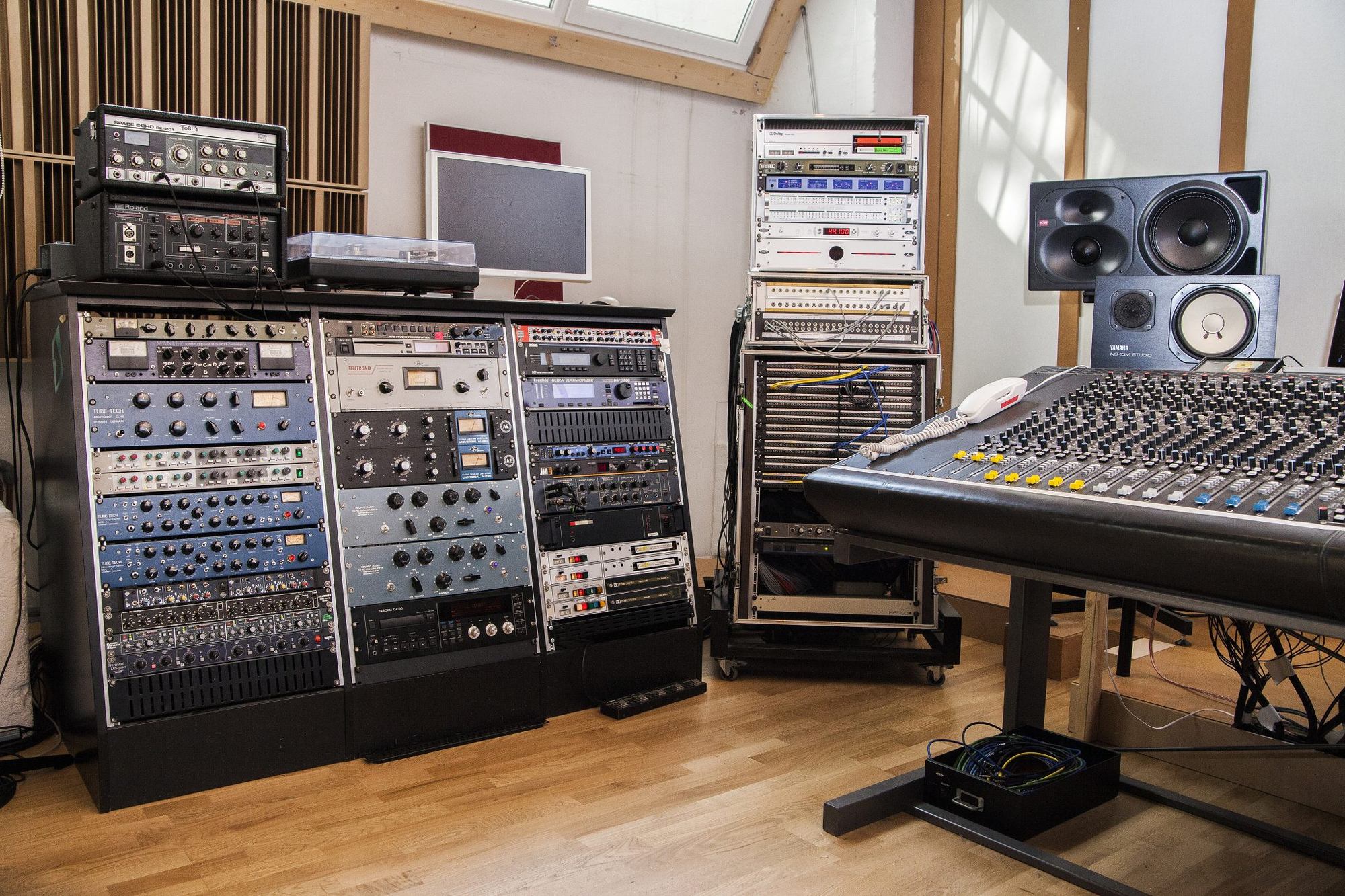
Tobi, it’s a pleasure to meet with you. Speaking of your last work, what did you want to achieve with this remix compared to the original track?
Same here, thanks for having me.
When I heard Marc‘s album I was really amazed at the quality of his tracks. He chose the track “Failure” for me to remix. I was instantly inspired and actually, the main elements came together quite quickly. I had this modern so-called “Deep-House” in my mind. The remix is 123bpm, instead of the 90bpm of the original. But I used a few of his original sounds plus his voice of course.
We know you as a passionate and experienced producer and a fine analogic connoisseur, which is the equipment of your studio setup that you did use most in creating this track and how it helped you reaching the final version?
For the bassline, I used once again the legendary Roland SH 101. It‘s crazy. I have so many potential bass-synthesizers in the studio like the SE1-X, a 303, a Model D Minimoog, the great Sequential Circuits Prophet V REV2, an Oberheim Xpander and many more, but often the tone of the SH 101 is just so perfect, especially when it plays with 909-style drum-sounds together.
The other sounds I used were mainly made with my modular systems like the kick drum, the percussion-sounds and the sequenced melodies. Plus the very high synth-sound in the peak of the track comes from the Xpander.
At the end, everything was mixed on our Zaehl AM1 Analog Mixing-Console together with the outboard equipment.
Your studio is off the scale. Can you describe your setup and what you think are the must-have pieces for anyone willing to create a performing studio able to maximise their creativity?
I stopped to point out one piece, one instrument or one item of gear. I have a collection of precious analogue and digital instruments which I started to gather in 1988. So my studio is a little bit like a museum but in perfect working conditions. I‘m quite proud of the fact that you can use every item. Everything is connected via 800 patch points TT patch-bay. It is synchronized by MIDI and DIN sync. All the sequencers and rhythm machines reset on the stop command on the DAW which is really important. And digitally everything is clocked by an Antilope Atom Clock system and we use a LEMO patch-bay for all the AES signals.
To achieve this state of technical perfection took years of setting up and a lot of experience. Now it‘s a pleasure to turn the studio on and just start with whatever machine you want to work with. Even every direct-out of the 52 channels of the Zaehl AM1 is connected to the dedicated input of the sound cards; you just have to select the right channel and you can record instantly everything.
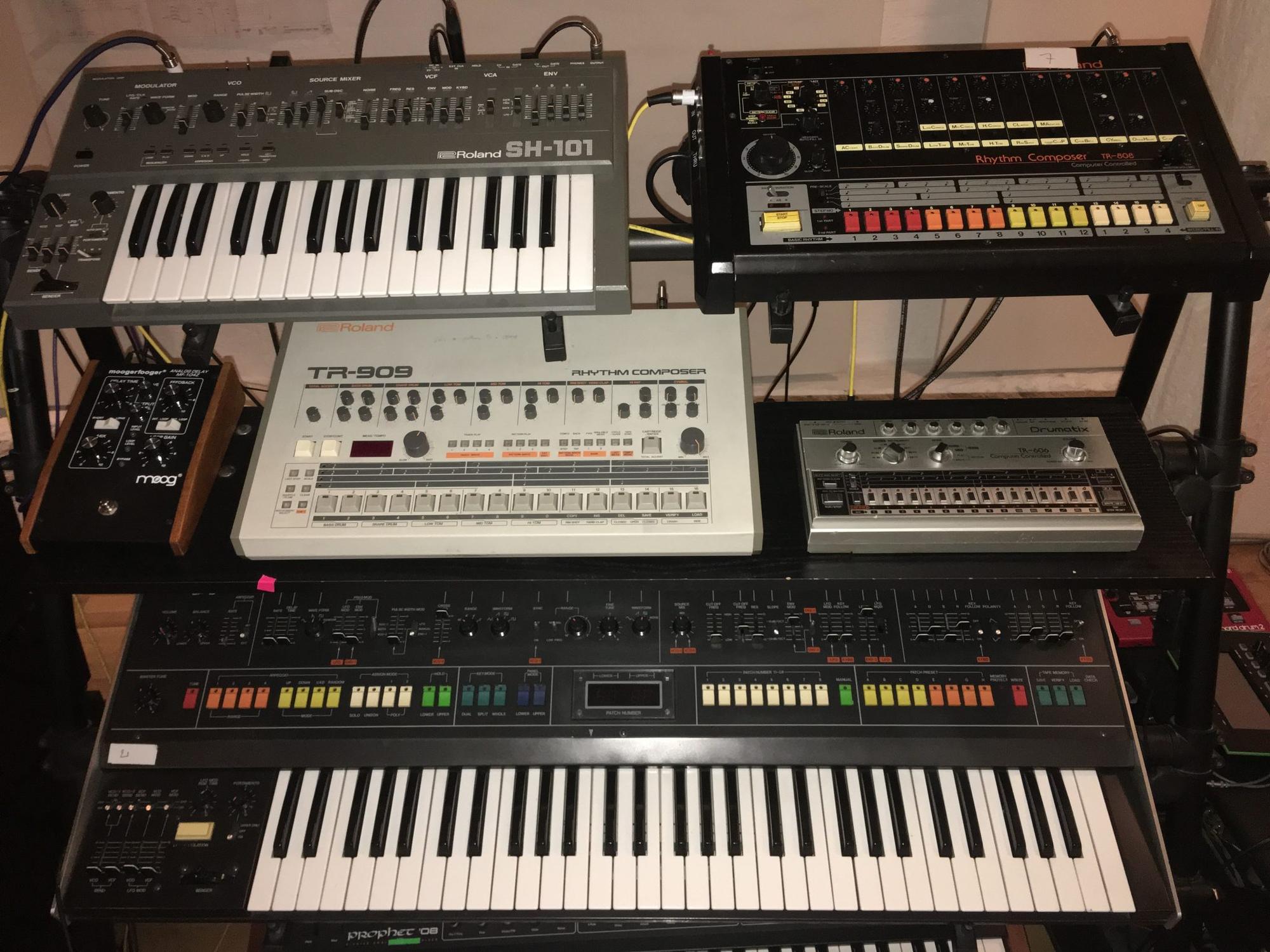
Modular synthesisers: apart from being wonderful pieces of electronics, they give extreme flexibility in modification or processing several parameters when producing music. Can you share with us part of your extensive knowledge on the topic? Where to start and what is their real added value?
For me, the incredible and direct sound and the easy way of not sounding static is the biggest benefit of modular. Another great thing about modular is that you can‘t save any sounds. You need to know which sound you want to use and then just create and record it. Done!
Whoever has tried to maintain inspired after going thru a sound-bank of hundreds of saved sounds from a Plug-In knows what I am talking about. It always killed me to have so many options.
And as a tip for modular synthesis, if you want to start and learn just buy a semi-modular synth like the great Intellijel Atlantis or the Cwejman BLD. They contain all major modules which you need to make a sound like VCO, VCA, LFO Envelopes and Filters. They are pre-wired internally but you can interrupt each circuit and add some other modules. That‘s a quite handy way to learn it. I just have to warn you, modular systems are quite addictive and cost money.

Now a classic question, even if we know you are biased towards analogic: which are pros and cons of both digital and analogic in your opinion?
I record everything which I created analog on a digital DAW. I think that answers your question. But since the early nineties, I use both options. It would not be possible to make music on your lap while travelling thru the world with analog gear. It is quite obvious where are the advantages of the digital world. But sound-wise I prefer a true analog signal than a digital emulation of it. Also because the digital emulation sounds like it but never has the life, neither the three dimensional sound of a true analogue synthesizer, especially the very old discrete circuits board ones. If I use a digital instrument or a Plug-In I prefer the ones with their own synthesis-concept instead of trying to sound like a real 909 or a Minimoog.
Both as a DJ and as a producer you did so far an amazing career. Given that, you are well respected and considered as an example to follow: where is going now Tobi DJ? And Tobi producer?
As a DJ I am still playing but not at such a high frequency anymore than in the last 18 years. Tobi the producer just lives his second springtime. I‘m totally hot for writing music and for producer-work.
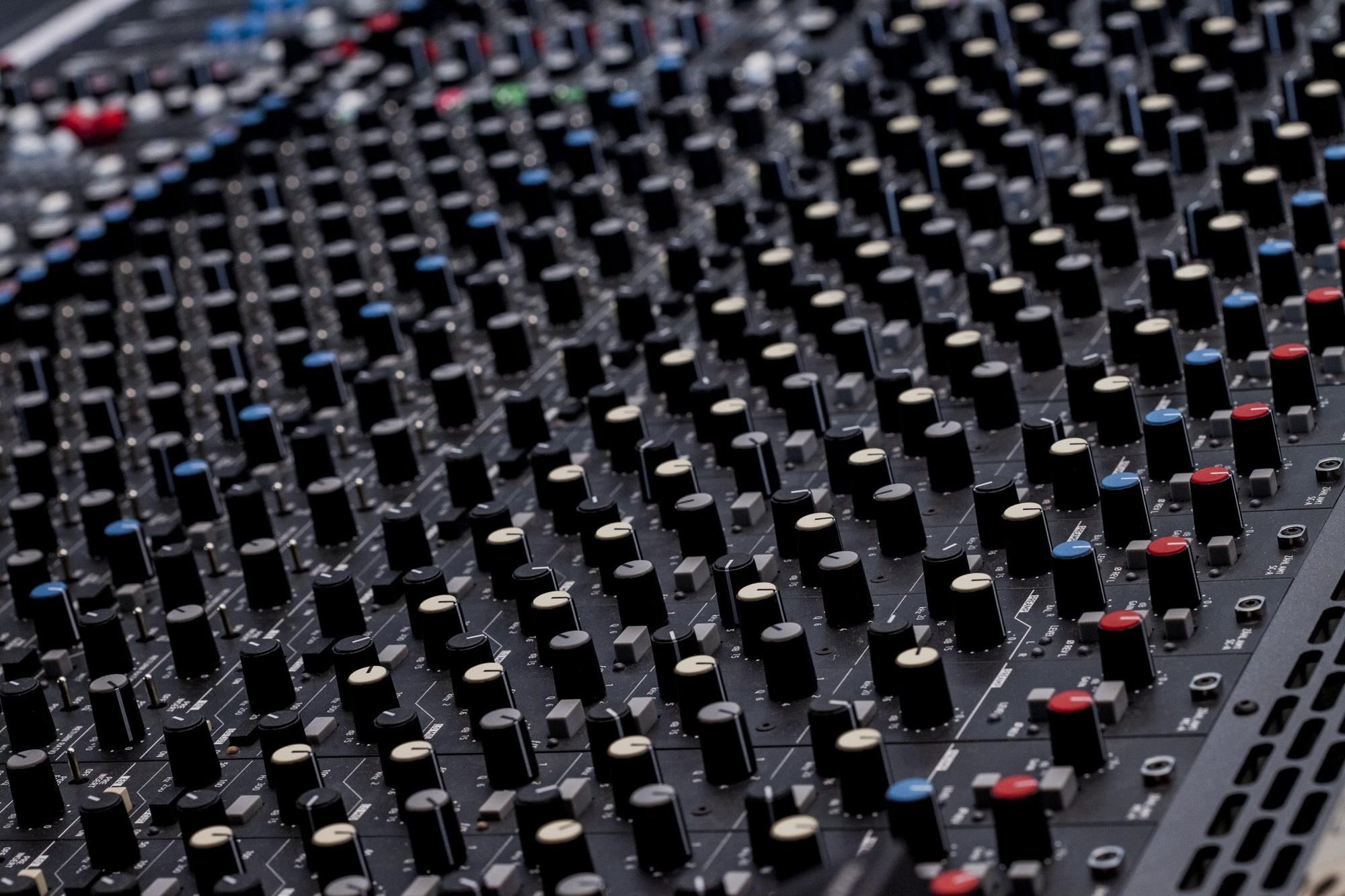
You can be considered from the “old guard” in this scene, which you helped grow, develop and become more popular than in the past. What tips or suggestions do you have for the new waves of artists coming through?
Be yourself. If you want to produce music, please learn an instrument. You don‘t have to become the best player on it but it‘s crucial to learn about music and harmonies.
And if you name yourself a DJ you should be able to play more than only one set, you should be able to play a proper warm-up, a peak-time set or something trippy for a late morning situation. Of course in your style and what fits your taste, but with variability. Unfortunately, many artists of these days take themselves so seriously that they can‘t even imagine playing something else then their prepared playlist.
In my opinion, a DJ gives a service to the people and have to react to situations. It‘s a profession and requires a huge knowledge of music and not only a Beatport playlist and proper social media self-presentation.
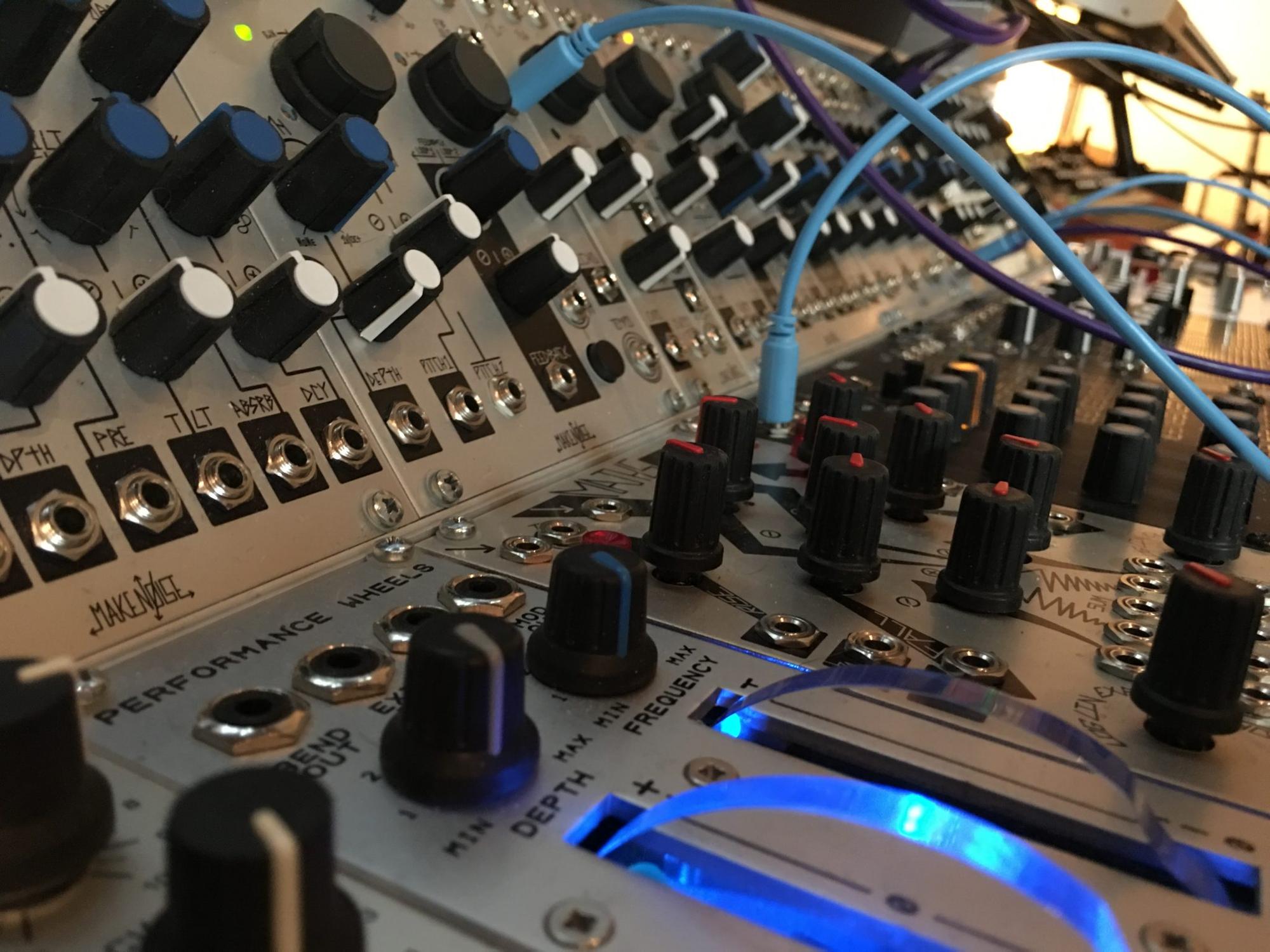
Tobi Neumann’s next release is his remix of Marc Houle’s “Failure” released on the 19th January on Items & Things. Pre-order on Beatport
Follow Tobi Neumann:
https://www.facebook.com/tobineumannofficial/
https://soundcloud.com/djtobineumann
http://instagram.com/djtobineumann
www.apollostudio-berlin.com
Marc Houle:
https://www.facebook.com/marchoule.official/
https://www.facebook.com/itemsandthings/



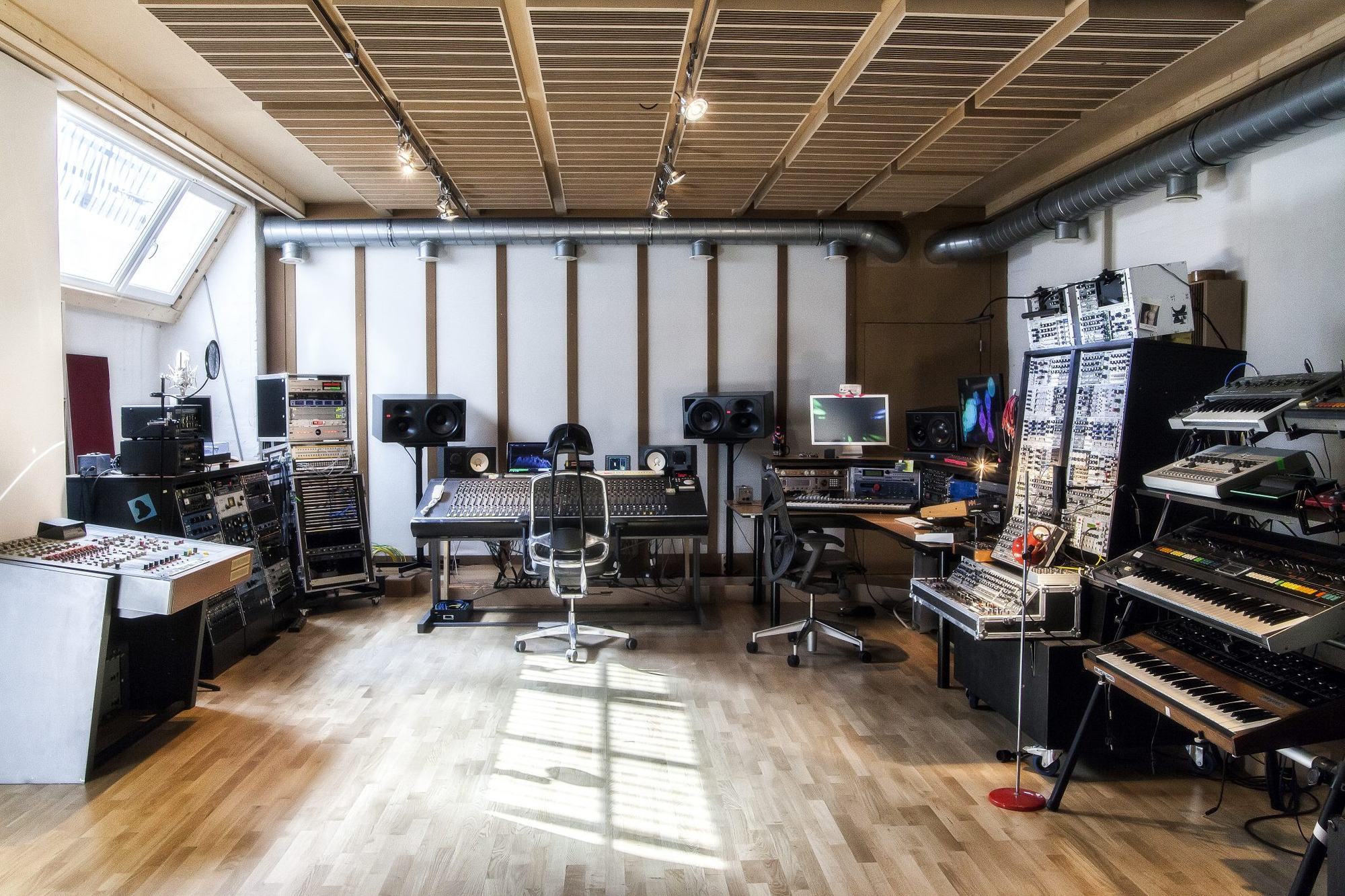

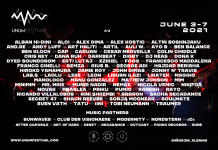
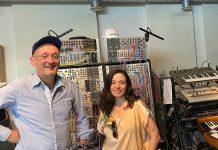
![Premiere: A2 – mrelss – Season of Reason [AMAM044]](https://trommelmusic.com/wp-content/uploads/2026/02/label_side_A-Alessio-Mereu-324x235.jpg)
![Premiere: 2 – Santon – Only a Test (Alain de Saracho Remix) [SDR012]](https://trommelmusic.com/wp-content/uploads/2026/02/Santon-Only-a-Test-EP-Artwork-Alain-de-Saracho-100x70.png)
![Free Download: Zombies in Miami – What Ya Doing [TFD128]](https://trommelmusic.com/wp-content/uploads/2026/02/photo_2026-02-12-10.38.24-e1770892750337-100x70.jpeg)
![Premiere: 1 – DAT (Italy) – Not My Plan [SENS001]](https://trommelmusic.com/wp-content/uploads/2026/02/IMG_9750-Sensazione-Stupenda-100x70.png)
![Premiere: B1 – Kolhida – Break And Escape (Cezar Lazãr Remix) [TTM003]](https://trommelmusic.com/wp-content/uploads/2026/02/IMG_2883-Aleksandr-Gocheleyshvili-100x70.png)
![Premiere: A1 – JJ Fortune – Design [LNS10]](https://trommelmusic.com/wp-content/uploads/2026/02/1188556-100x70.jpg)
![Premiere: A1 – Alexander Skancke – Saga Of Subvision [QRK015]](https://trommelmusic.com/wp-content/uploads/2026/02/photo_2026-02-03_17-31-24-100x70.jpg)

![Premiere: A1 – Light Blue File – JUNIOR [RCR002]](https://trommelmusic.com/wp-content/uploads/2026/02/RCR.002.FRONT_.LABEL-Will-Gilliland-100x70.png)
![Premiere: A2 – Lisovskyi – Just One Good Whiff [FIB004]](https://trommelmusic.com/wp-content/uploads/2026/02/B-100x70.png)